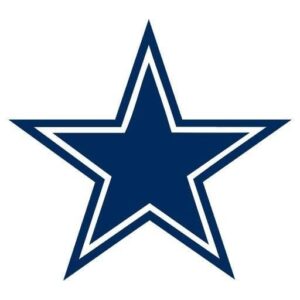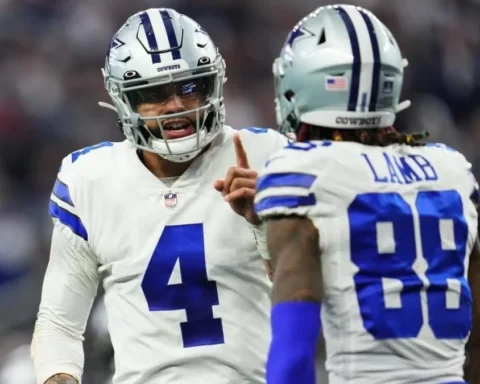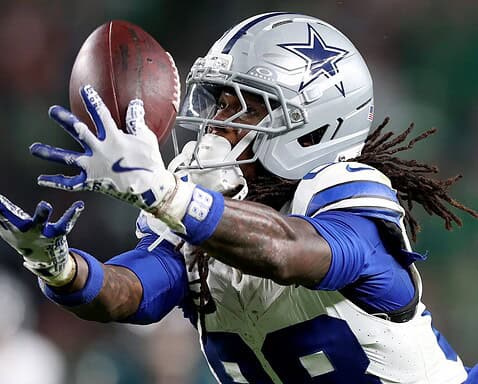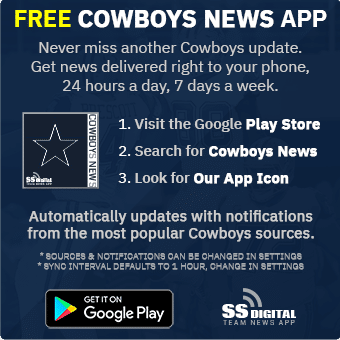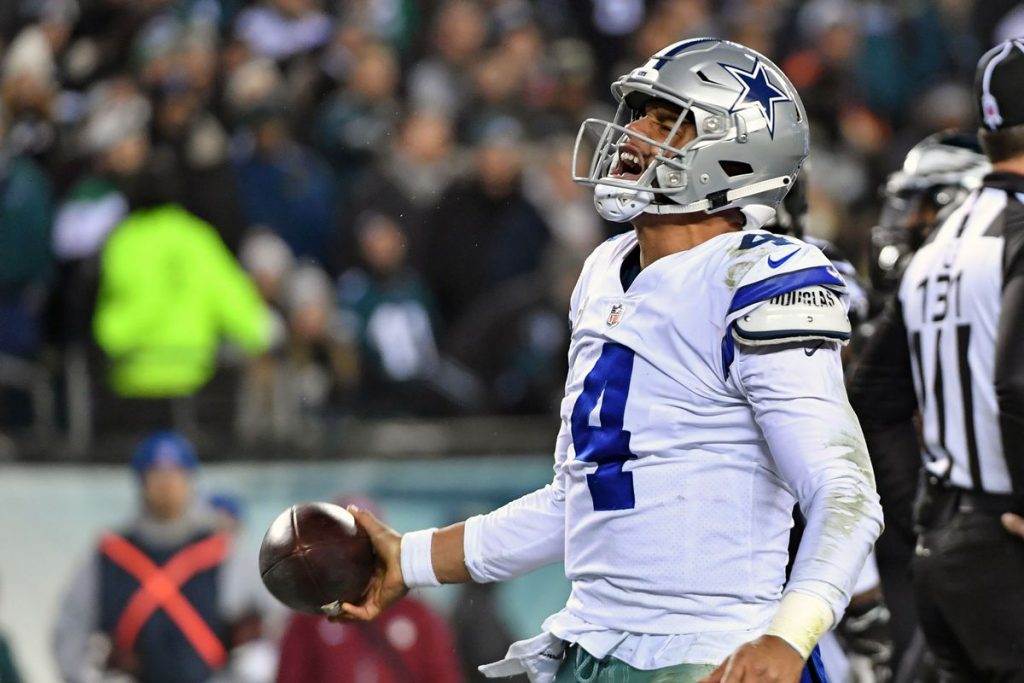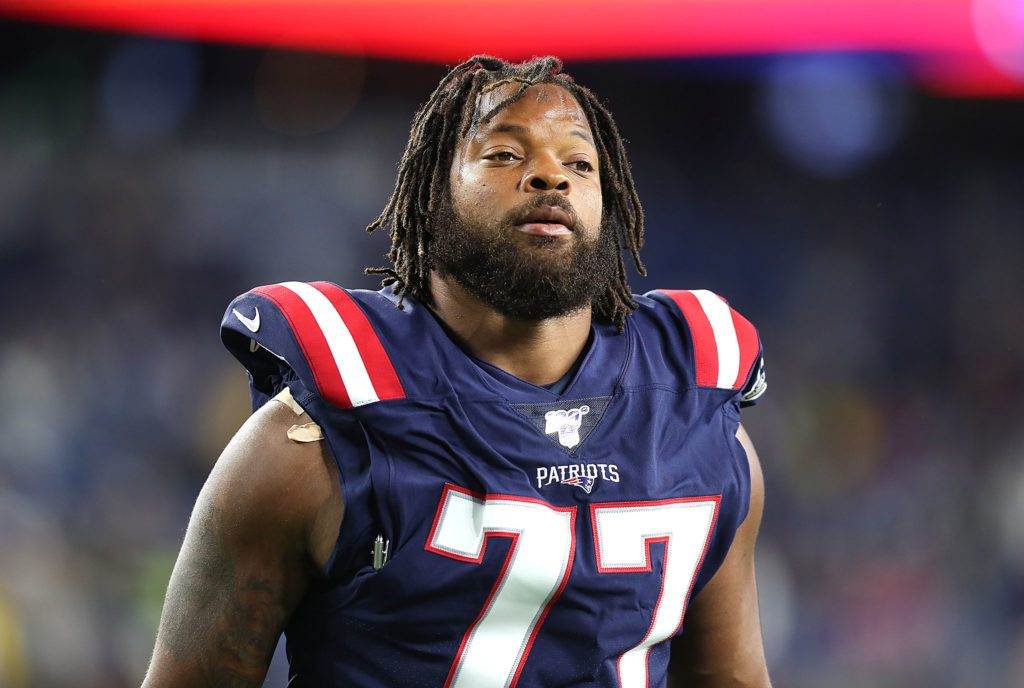After the Dallas Cowboys fell to 3-3, the sky appeared to be falling. The team had reason to remain confident in their ability to pull out a victory, but after struggling in different phases of the game over their three-game losing streak, outside the locker room questions about this team began to pop up like wildflowers on a spring day.
It doesn’t take long for opinions to form and solidify in the minds of fans and analysts alike. Narratives, both positive or negative and true or false are more quickly created than they are disolved. On Sunday Night Football with the Philadelphia Eagles coming to town for a mid-season battle atop the NFC East, the Dallas Cowboys put to bed a lot of the narratives that have followed them throughout the 2019 season.
Let’s take a look back at what the Cowboys were able to accomplish in week seven that they might have struggled with through the first six weeks of 2019.
Creating Turnovers
Heading into week seven, the Dallas Cowboys were one of the worst defenses in the NFL at creating turnovers. With only five through six games, it was beginning to seem that this team would never become a team that could consistently take the ball away from the opposition. That narrative was quickly turned on its head in the first five minutes of the game.
On each of the Philadelphia Eagles’ first two drives of the game on Sunday, the Dallas Cowboys forced two fumbles; one by Jaylon Smith, which was recovered by Maliek Collins, and one by DeMarcus Lawrence recovered by Antwaun Woods.
On the night the Cowboys forced and recovered three fumbles and added an interception by Xavier Woods. Their ability to get those turnovers put the Dallas Cowboys ahead early and with the offense handling its business, the Cowboys were pretty much able to seal the game by the end of the first half.
Field Position
Because of the early fumbles that were recovered in Eagles’ territory, the Dallas Cowboys got the opportunity to start a drive on their opponents half of the 50-yard line for the first time in 2019. And they did so twice.
It’s very difficult for teams to drive 75-90 yards every time they get the ball on offense and expect there to be any consistency on offense. So many things can happen on a drive that can negatively impact an offense’s ability to score points. Penalties, sacks, and simply executing driving the length of the field a really difficult proposition.
It’s amazing that the Cowboys, who’ve had one of the worst average starting positions in the NFL this year, have been able to put up the points they have through six games. Before Sunday, they hadn’t had the opportunity for any short drives. Incredible what playing with a short field can do for you.
Fast Starts
For the last several weeks, getting off to a quick start was mentioned relentlessly as something the Dallas Cowboys needed to correct. Through six games, the Dallas Cowboys had yet to score a touchdown on each on their opening possessions. The most points they had scored in a first-quarter all season was 10, against the Miami Dolphins.
Even in the wins, the Cowboys struggled to get anything going in the first half of games. During the three-game losing streak, the Cowboys averaged just three points a game and were shut out in the first half by the Green Bay Packers in their week five loss.
Against the Eagles, aided by the two fumbles recovered on the Philadelphia side of the 50-yard line, the Dallas Cowboys accomplished two things they hadn’t done all season; score an opening drive touchdown and score 14 points in the first quarter.
Though the Eagles bounced back to make it 14-7, the Cowboys set the tone for the game by getting those two early touchdowns. The Eagles had to play catch up mode and the Cowboys’ defense was allowed to play more aggressively after seeing what the offense was able to accomplish early on.
Cowboys Recently Paid Players Show Up Big
The Dallas Cowboys front office and ownership shelled out a lot of money this offseason to three of their most important players in DeMarcus Lawrence, Jaylon Smith, and Ezekiel Elliott. These players have not only become stars for the Cowboys, but they’re leaders on a young team. Each was signed to a long-term contract at some point before the 2019 regular season and each were getting criticized heavily for their play early in the 2019 season.
There’ve been a lot of people point to DeMarcus Lawrence’s sack totals as evidence that he’s not having a good season. Though he may not have had a lot of sacks through the first six games of the season, Lawrence was as disruptive as ever. He was getting a lot of pressure on the quarterback and was still making plays in the run game.
In Sunday’s win over the Eagles, Lawrence made a huge play in the first quarter of the game to strip Carson Wentz of the football, allowing Antwaun Woods to make the recovery, setting up the Cowboys second touchdown of the game.
At the linebacker level, Jaylon Smith, who has had some bad moments in 2019, rebounded with his best game of the season. He was flying around the field aggressively and freely, much like the player we saw breakout in 2018. His hit on Dallas Goedert on the Eagles opening drive of the game jarred the football loose and Maliek Collins was there to recover it, setting up the Cowboys first score of the game. Later in the game, with the Eagles driving, Jaylon had a nice diving pass deflection in coverage on Ertz.
On offense, the biggest difference in this game than the previous six was the running of Ezekiel Elliott. Against the Eagles, Elliott looked more like the runner that led the NFL in rushing in 2016 and 2018. Much was made of what looked like a lack of burst or finishing ability from Elliott in the first six games of the season, but this was by far his best game of the year.
Though Elliott’s longest run of the night went for just 16 yards, it was his physicality and elusiveness against a really good run defense that was the difference. He set a tone early on a play where he nearly scored when he lowered his shoulder and blew up Eagles’ Safety Malcolm Jenkins as the defender was attempting to fill in the hole.
Elliott ran with much better balance and burst through the hole and looked to have shaken off that early season rust that we’ve grown accustomed to with him in his career. Remember, in previous seasons, Elliott started slowly even with full training camps, which are typically six to seven weeks. After not practicing during training camp or playing during the preseason, Elliott had spent the last six weeks getting in game shape on the fly and playing in games. He didn’t look bad, but he wasn’t the player we’ve all come to expect. Now seven weeks into the season, it looks like Elliott is up to speed.
Jason Garrett
When analysts looked for reasons that the team was struggling during their three-game losing streak, much of the blame, whether right or wrong, was being laid at the feet of the coaching staff; primarily Head Coach Jason Garrett. When players aren’t playing well early in games or executing, some of that comes down to coaching and some of it is a player performance issue.
I’ve long held the opinion that Jason Garrett is a good coach, but realize that at some point he needs to be a part of a deep playoff run. During the three-game losing streak, even my confidence began to wane a bit as I, like many, looked for reasons why this team wasn’t showing up until the second half of these games.
If there’s a criticism that you can lay at Garrett’s feet it’s that this team’s identity in difficult game environments — at New Orleans, against Aaron Rodgers, or without their starting tackles — can lead to conservative play scripts. Those three games against the Saints, Packers, and Jets looked like a different team in the first half than they did the first three games of the season or even in the second half of those losses as they’re playing catch up.
I don’t believe that those were “Jason Garrett gameplans,” like many have suggested, but I do believe that the environments influenced Garrett to lead them to play more conservatively. As Kellen Moore grows and learns in his new role as an offensive coordinator, it’s only going to be natural for him to take his cues or even allow himself to be influenced by Garrett.
In this win over the Philadelphia Eagles, the Dallas Cowboys came to play. Both on offense and defense, they had a gameplan to attack the Eagles and the players executed extremely well. Fundamentally they were a better team than they had shown during the three-game losing streak. They tackled better, and aside from the two personal fouls that led to an Eagles touchdown and a couple Tyron Smith rust-related holding penalties, the Cowboys played a fairly clean game when the game mattered in the first half.
Both Dallas Cowboys Owner and General Manager Jerry Jones and Vice President Stephen Jones indicated after the Jets loss that Garrett wasn’t on the hot seat. Primarily, they believed that Garrett still had the locker room, and Sunday Night Football should prove that to be true. The team came to play and they executed from the get-go. As much as fans and national media may not like Garrett or want to give him any credit when things go well, this team came to play against their biggest rival, in a big midseason game.
✭ ✭ ✭ ✭ ✭
The Dallas Cowboys are a good football team that underperformed for a three-game stretch. In week seven, they burst out of their funk in a huge way. With nine games left on the schedule coming out of the bye, the Cowboys needed this game to give themselves a chance at making the playoffs in 2019. If they’re able to navigate the tough slate of games they’ve got coming, they’ll be battle-tested as they head into January.

